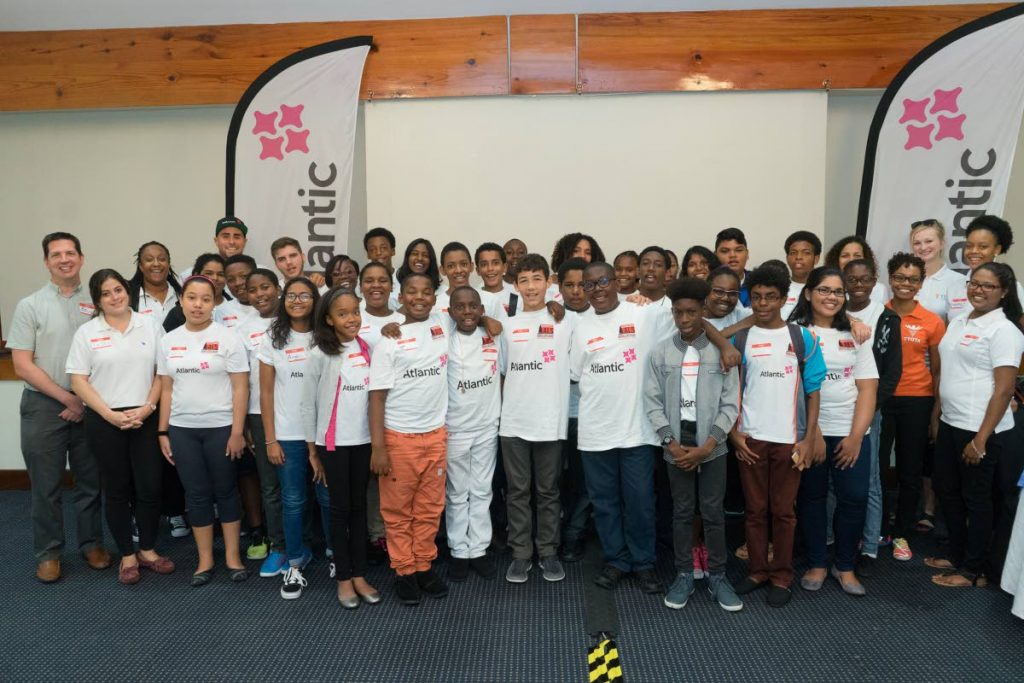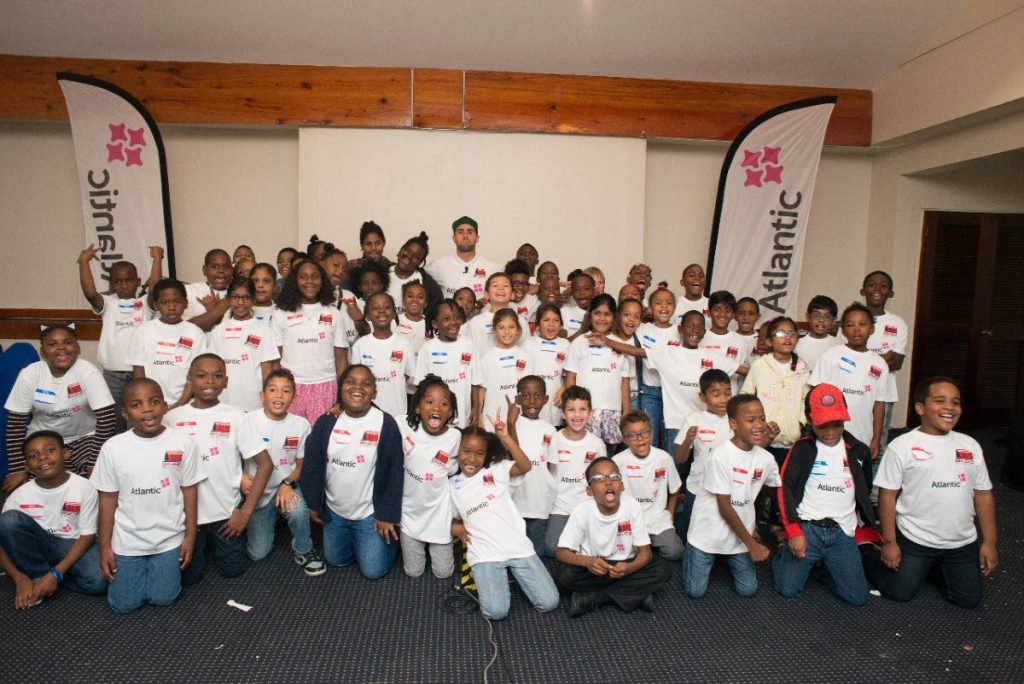Dyslexia is a superpower
![Andrew Lewis ]](https://newsday.co.tt/wp-content/uploads/2019/04/3251912-1024x683.jpg)
A classroom can be hell if you are dyslexic. Many students go through school undiagnosed and often teachers may not recognise the students to have the specific learning disability, leading them to be placed in the bottom of the class. Dyslexic children struggle to learn how to read, they have trouble reading accurately and fluently and they may also have trouble with reading comprehension, spelling and writing.
Olympic sailor and dyslexic, Andrew Lewis wants to help dyslexic students in his second instalment of Succeeding With Dyslexia – a seminar for children with dyslexia to learn how to cope in school.

Dyslexia is categorised as a specific learning disability that most commonly affects a person's reading and writing skills. Dr Brock Eide and Dr Fernette Eide, physicians from Seattle, US who specialise in neuro-learning, describe dyslexia or the dyslexic processing style as not simply a spelling, reading and writing disability, but a different pattern of brain organisation and information processing. In their book The Dyslexic Advantage: Unlocking the Hidden Potential of the Dyslexic Brain, they detail how dyslexics have increased abilities in three-dimensional spatial reasoning and mechanical ability, the ability to perceive complex relationships like analogies and metaphors, powerful long-term memories and perception into patterns and complex data analysis.
These skills have led to fields like entrepreneurship, engineering, architecture and arts becoming known as "dyslexic-rich." Successful dyslexics include Steve Jobs, Steven Spielberg, Richard Branson, and many suspect Albert Einstein and Leonardo Da Vinci of having dyslexia.
In TT, notable dyslexics include Archbishop Jason Gordon and Lewis, both of whom will be speaking at the seminar to help students build their confidence, show them alternative ways of learning and provide a safe space where they can discuss their dyslexia with people who understand what they are going through.
Lewis, 29, held the first Succeeding with Dyslexia last year. The seminar was created out of his need to give back and help children who experienced the same struggles he did as a student.
“Every day when I wake up, I wake up with the challenges that come with having dyslexia. But I am on a mission, a mission to represent my country at my third Olympics, and dyslexia will not stop me – in fact, it’s going to help me.

"I am super excited to be able to host my second Succeeding with Dyslexia seminar. I can’t wait to bring the family back together again to continue the mission of realising that while dyslexia can be challenging, it should never stop you from chasing and achieving your dreams," said Lewis.
Lewis is currently in Spain training for the Olympic qualifiers. Newsday spoke to his manager, Derek Daniel, about the seminar and the opportunities it will provide for students.
"Andrew is really passionate about this project. With most dyslexic people, ten to 20 years ago, people didn't understand dyslexics that much, so they were put in the back of the class and teachers did not know how to cope with them.
"When they realised he was dyslexic, they came up with a lot of tactics to cope with the challenges of being dyslexic," Daniel said.
Lewis was diagnosed with dyslexia and ADHD (attention deficit hyperactivity disorder) at nine, but many children with learning disabilities go undiagnosed through their entire school career. Daniel encourages parents to send their child to the seminar even if they have no formal diagnosis but suspect their child may have dyslexia.
Daniel said last year’s group of students went to school the following week boasting that they were dyslexic. "This is my superpower," they said.
"These children were coming from a very low place of being called stupid and put to the back of the class to feeling like a superhero," Daniel said.
Only at the end will parents be invited in to hear about the different coping mechanisms for the children. Daniel said this would give the students the ability to be comfortable opening up about their dyslexia without the pressure to perform from their parents.
The students will speak with Dr Tim Conway, from the Morris Centre, located on Morne Coco Road. The Morris Centre helps improve skills of children and adults who have difficulty with reading, spelling, comprehension, writing, speech, math, sensory processing attention, behaviour or social skills. Conway specialises in helping students with learning disabilities develop coping mechanisms in school. They will have motivation sessions held by both Lewis and the Archbishop.
The students will learn sensory body movement, tactile skills, anxiety management from One Yoga's Troy Hadeed and will be given a workbook they can use to practise the skills they learned at the seminar.
Succeeding with Dyslexia will be held on April 10 and 11 at St Dominic's Pastoral Centre on the St Finbar's Church compound, Westmoorings. The seminar for children between six and 12 will be on April 10, and for students between 12 and 18 on April 11. This will be an all-day seminar from 8 am-4 pm, and only for children.
Anyone interested in registering for the seminar can contact Daniel at derek.dreambig@gmail.com.
Succeeding with Dyslexia is sponsored by Atlantic and is free for any primary or secondary school student who has dyslexia or suspects they may have dyslexia.

Comments
"Dyslexia is a superpower"